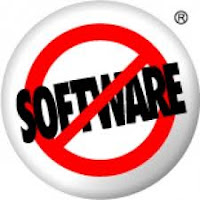- One of the most important things to consider in negotiating a new job is to focus on the big things first. I've seen inexperienced salespeople demanding a shiny new Macbook Pro instead of the company standard of a PC. Really, guys, is this in your best interest? Negotiation items that really matter in the bigger scheme of things. Discuss benefits, discuss car allowances, vacation, the commission plan, etc. Save your low-dollar demands for either the end of the negotiation. Better yet, leave them out altogether. If you want a freakin' Macbook, fork out the $1,600 yourself. How does this small amount fit in the priority of negotiating a 6-figure compensation program. Doing these kinds of things demonstrates a lack of understanding that big things must be considered last, if it all.
- As part of your due diligence, ask to speak to your future peers, your engineering support people and as many other folks that will give you a well-rounded vision into company culture. You'll pick up skills that will help you negotiate when you're ready.
- In a soft and casual way, find out what points are really negotiable and which are not. Spend your intellectual capital in smart ways. Align with the company culture and figure out if you're willing to take an offer than may not have everything you want, but overall puts you into a better environment with better growth potential.
- When it comes to serious negotiation, take advice from the pros. Trade off things you want with concessions you're willing to make. For deal killers, state your requirements clearly and shut up. The one who talks first, is likely the one who will win. Be careful here, though. Some items simply cannot be negotiated. Find out what these sticky points are and be prepared to concede on these points if you really want the job.
- Don't consider making a move unless your new prospective company really values what you have to bring to the organization. Don't worry, they'll probably tell you, and if they want you bad enough, they'll likely go to the ends of the earth to get you. What they WON'T do, is to challenge company culture or set unusual precedent.
Be smart. don't fight over the little things and soon enough you'll be part of a new team, with an new business card. Happy negotiation.


